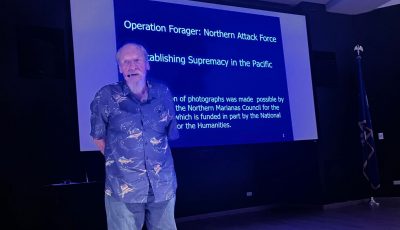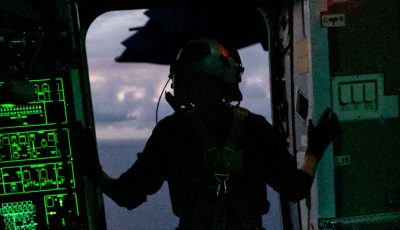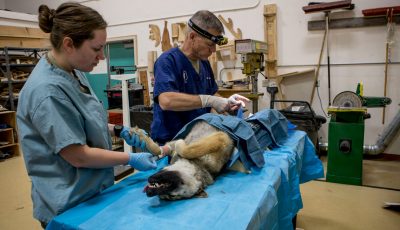US govt again opposes Ataligs’ bid to add ex-OIG agent to their witness list
The U.S. government has renewed its opposition to a joint motion by Rota Mayor Efraim M. Atalig and his girlfriend, Evelyn Atalig, to allow them to add a former special agent with the Office of the Inspector General as their expert witness.
In the U.S. government’s renewed opposition filed Friday in federal court, assistant U.S. attorney Eric S. O’Malley asserted that the Ataligs’ joint motion is untimely and that they have failed to provide a summary of the expert’s opinion, bases, and reasons for those opinions, as required by the Federal Rule of Criminal Procedure.
Efraim Atalig and Evelyn Atalig, through their respective lawyers, David G. Banes and Steven P. Pixley, respectively, said they intend to call Dr. Gregory Vecchi as a witness regarding interviewing techniques and reporting in a criminal investigation.
In defendants’ joint motion to amend witness list filed March 6 in court, Banes and Pixley said Vecchi has 19 years of experience working for the Federal Bureau of Investigation. They said that Vecchi has held various other professional positions related to criminal investigations, including as a special agent for the Office of the Inspector General of the U.S. Department of Justice, investigating crimes involving federal employees.
If called to the witness stand, Vecchi is expected to testify as to the coercive and misleading effect of the way the government’s investigative agents used when interviewing witnesses in this case, the two lawyers said.
In the U.S. government’s renewed opposition, O’Malley said the defendants’ motion was filed two business days before trial, which was then set for March 10, 2020.
O’Malley said the motion sought to introduce an expert witness into the trial, notwithstanding the fact that, at that point, the proposed expert apparently knew little to nothing about the case.
O’Malley said that same afternoon, the U.S. government requested the summary of the expert’s opinion, basis and reasons for those opinions, as required by the Federal Rule of Criminal Procedure, but received no response.
He said the court ordered the U.S. government to respond by March 9, the day before the then-trial date, and set the matter for a hearing one hour before jury selection was to begin on March 20.
At this point, O’Malley said, the only information available to the U.S. government regarding the proposed expert came from the defendants’ motion, which at most appeared to speculate as to what the expert would eventually conclude.
“Accordingly, the government’s sole point of opposition was timeliness,” he said.
O’Malley said the March 10, 2020, hearing on the defendants’ motion did not occur due to an avoidable delay, which also resulted in an eight-day delay of the trial, which was reset to March 18, 2020. O’Malley said the court also reset the motion hearing to March 12, 2020.
He said at the March 12 hearing, the U.S. government informed the court that it had requested but not received the required expert opinion summary. O’Malley said the defense explained that this was because the proposed expert had not, in fact, even been formally retained, although the paperwork was pending.
He said the defense also informed the court and the U.S. government that it intended to file yet another motion, which turned out to be a motion seeking sanctions against the U.S. government for reaching out to the proposed expert over the weekend.
The court then continued the hearing regarding the proposed expert to March 25, 2020.
O’Malley said the defense promised to provide the summary to the U.S. government before March 25, but did not do so.
On March 16, the court vacated the trial and pending hearings due to an unavoidable delay, caused by the COVID-19 pandemic.
O’Malley said that, on March 18, defense counsel emailed the government requesting more time to submit the expert’s report, noting that the proposed expert had not been able to focus on performing his analysis because he was, instead, drafting an affidavit in support of the motion for sanctions. He said the U.S. government agreed to extend the deadline until March 26 and the defense counsel accepted the deadline and offered to draft a stipulation. He said the defense counsel neither did that nor provided the proposed expert’s summary by the agreed-upon deadline.
On April 3, defense counsel emailed the U.S. government to ask whether the government would object to amending the protective order regarding grand jury material to allow the proposed expert to review the transcripts. O’Malley said the defense counsel also asked whether the U.S. government would object to the proposed expert seeing the material provided in discovery.
O’Malley said the prosecution did not object because, in its view, it was not yet decided that the proposed expert was part of the defense team, given that the court had yet to rule on the original motion, and the government had still not received the required summary.
He said that Banes responded by claiming, for the first time, that it was his proposed expert’s inability to review the grand jury and discovery material that prevents him from completing his summary. O’Malley said if the court were to allow this, and thereby establish a precedent that defendants can wait until the very last second before seeking to introduce expert testimony, trials would become segmented, confused, and unnecessarily prolonged affairs.
The prosecutor said because defendants failed initially to provide timely notice of their intent to introduce expert testimony, and continue to defy the court’s deadline to provide the U.S. government with their summary report, the court would be within its discretion to deny their motion to add the proposed expert to their witness list.
The charges against Efraim and Evelyn Atalig involve at least eight trips taken by the couple at different times in 2018 to Guam, Palau, the U.S. mainland, South Korea, and Saipan.
The Ataligs are being charged jointly with conspiracy to commit wire fraud and theft from program receiving federal funds, wire fraud, and theft from program receiving federal funds. Both are also charged separately with false statement.
Manglona recently postponed the jury trial due to coronavirus pandemic.



























